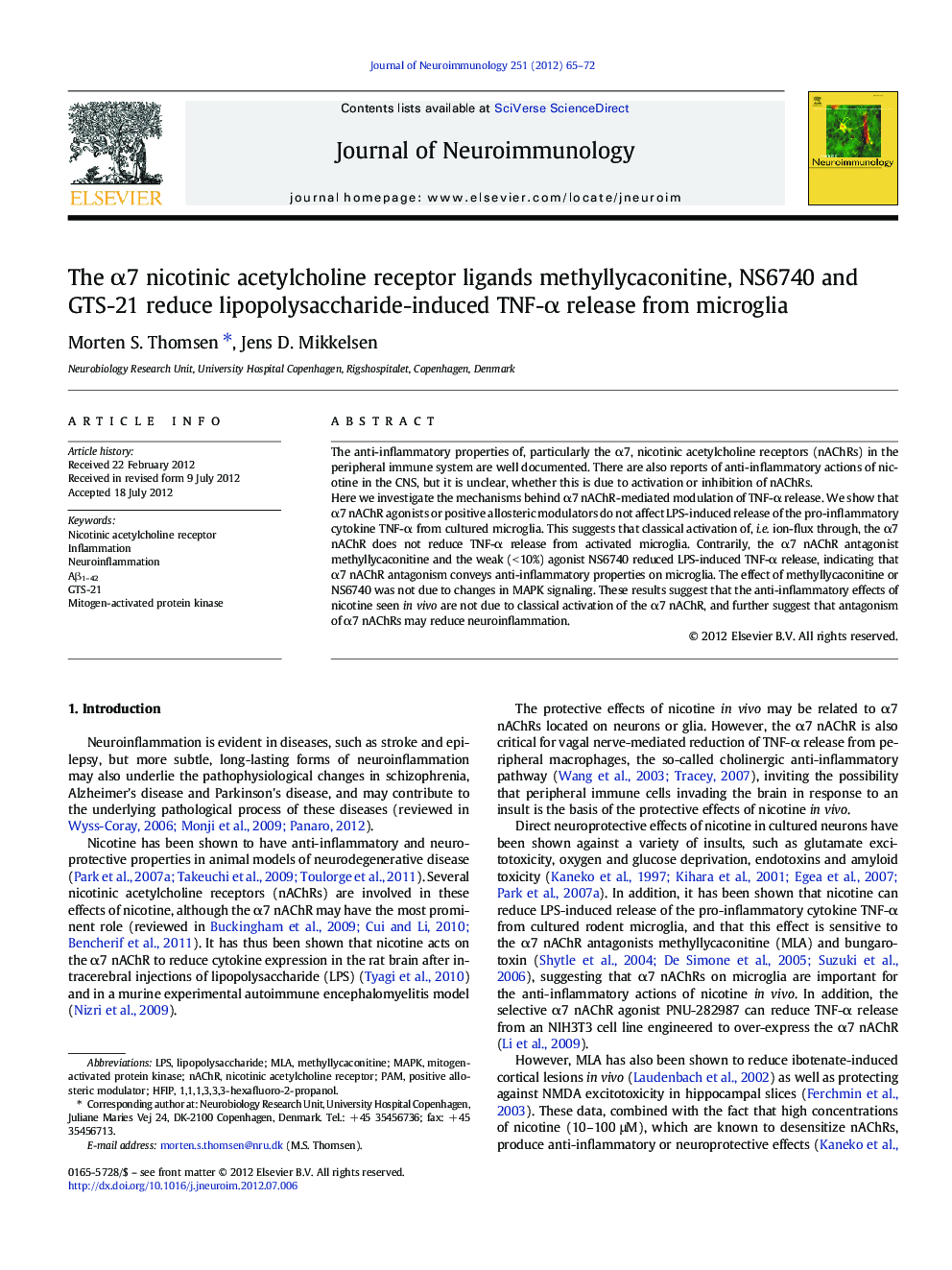| Article ID | Journal | Published Year | Pages | File Type |
|---|---|---|---|---|
| 6020677 | Journal of Neuroimmunology | 2012 | 8 Pages |
Abstract
Here we investigate the mechanisms behind α7 nAChR-mediated modulation of TNF-α release. We show that α7 nAChR agonists or positive allosteric modulators do not affect LPS-induced release of the pro-inflammatory cytokine TNF-α from cultured microglia. This suggests that classical activation of, i.e. ion-flux through, the α7 nAChR does not reduce TNF-α release from activated microglia. Contrarily, the α7 nAChR antagonist methyllycaconitine and the weak (< 10%) agonist NS6740 reduced LPS-induced TNF-α release, indicating that α7 nAChR antagonism conveys anti-inflammatory properties on microglia. The effect of methyllycaconitine or NS6740 was not due to changes in MAPK signaling. These results suggest that the anti-inflammatory effects of nicotine seen in vivo are not due to classical activation of the α7 nAChR, and further suggest that antagonism of α7 nAChRs may reduce neuroinflammation.
Keywords
Related Topics
Life Sciences
Immunology and Microbiology
Immunology
Authors
Morten S. Thomsen, Jens D. Mikkelsen,
